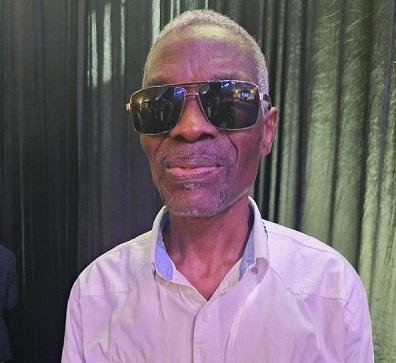Hot!
Negative cultural practices, bane of PWDs – GFDOs President

GFDOs president
The national president of the Ghana Federation of Disability Organisations (GFDOs), Mr Joseph Atsu Homadzi says life is becoming unbearable for People with Disabilities (PWDs) due to unhealthy cultural and traditional practices in some parts of society in this modern age and advancement.
According to him, “Some people even feel that we don’t deserve to live because of one disability or the other. As a result, mothers who have children with disability live in fear and discomfort.”
Mr Homadzi said this in a no-holds-barred interview with The Spectator about a day in the life of a PWD.
“Sometimes, it feels as though the fundamental human rights and freedoms of citizens guaranteed under the 1992 Constitution do not apply to PWDs because we are always discriminated against at all levels,” he lamented.
“Saddest of all, it may surprise you that some communities in this age still have some of these negative cultural practices against persons with albinism. Some people feel that such persons do not have the right to live because they are a taboo.”
According to Mr. Homadzi, he still receives complaints of discrimination against their members in the health and education sectors, the job market and other places.
“And I know it’s true because I suffer same. People treat us as if we are second-class citizens and do not want us to be close to them for any reason,” he disclosed.
“In some communities, it is believed that when you are going out in the morning for any activity and you meet a person or somebody with a visual impairment, it means a misfortune is about to befall you; for which reason you must return home” he said.
“People are still convinced that disability is a curse or punishment for a wrong a person has done and so we are treated with contempt. Some think associating with us could lead to a curse or punishment.”
Unfortunately, he disclosed that the GFDOs efforts to educate people to do away with such unfortunate practices have been in vain.
“We have disabilities but there is a lot we can do for this country if we are given the same opportunities as those who have no disabilities. It is sad to say that some people don’t understand why a PWD should be given a job or occupy a high position. We also have the capacity to contribute to the growth of our societies,” he said.
Mr Homadzi said it was important for society to also understand that apart from being born with a deformity, there were environmental accidents and a few medical conditions like glaucoma, measles, cataract that could make a person blind or deaf or both.
“We have told our stories in different ways but people have failed to accept us. We need everyone who has a louder voice to speak for us. We need the media to do a lot of advocacy and education on our behalf to change those perceptions,” he appealed.
He said the GFDOs would be happy to see religious institutions highlight their plights from their pulpits to turn the hearts of society in their favour.
From Dzifa Tetteh Tay, Tema
Hot!
Is the “Rev” title biblical?

In many Ghanaian churches, pastors are often introduced as “Reverend” or simply “Rev.”
The title is seen as a mark of respect, yet its biblical basis continues to stir debate.
While some Christians argue that it is a harmless way to honour church leaders, others insist it is unbiblical and should not be used at all.
Those who question the title usually point to the Bible itself. Nowhere in Scripture did Jesus or the apostles use “Reverend” for themselves or for one another.
Instead, they addressed each other as “brother” or “servant.” In Matthew 23, Jesus even warned his followers not to seek titles such as “rabbi” or “father,” teaching that all believers are equal under one God.
Critics also note that Psalm 111:9 describes God’s name alone as “holy and reverend” in the King James Bible.
To them, this means the word should be reserved for God, not for human beings. Others go further, citing Job 32, which cautions against giving flattering titles to men.
For such voices, the modern use of “Reverend” risks elevating pastors beyond what the Bible prescribes.
On the other hand, defenders of the title argue that it is not meant to replace God’s reverence but simply to acknowledge a minister’s role.
In many churches, “Reverend” is given to ordained ministers who have undergone training, much like the way a doctor is addressed as “Dr.”
The Bible itself, they point out, encourages believers to honour their leaders, with 1 Timothy 5:17 stating that elders who direct the affairs of the church well are “worthy of double honour.”
In this sense, the title is seen as a formal courtesy rather than a theological statement.
Supporters remind critics that Christianity does not operate in a vacuum but within cultural settings.
In Ghanaian society, respect for elders and authority is central to social order. Just as chiefs are addressed with titles such as “Nana” or “Togbe,” many Christians believe it is fitting to extend a similar courtesy to church leaders.
In their view, calling a pastor “Reverend” reflects Ghanaian values of honour and respect, and does not amount to worshipping a human being.
Yet the debate is far from settled. Some argue that the title has been abused, with individuals presenting themselves as “Reverend” without any proper training or accountability.
Calls have even been made for the regulation of church titles to prevent confusion and protect the credibility of ministry. Others, however, see no harm in its continued use, so long as it is not taken beyond what Scripture allows.
At the heart of the matter lies a bigger question: should Christians stick strictly to biblical language when addressing their leaders, or is it acceptable to adapt titles as society evolves?
The conversation is not just theological but cultural, touching on how Ghana balances respect for tradition with the authority of Scripture.
The debate over the “Rev” title is therefore not one with easy answers. What is clear, however, is that it forces us to reflect on how we show honour, how we interpret the Bible, and how faith interacts with our cultural practices.
As the discussion continues in church pews and on social platforms, we ask you: should pastors and ministers be called “Reverend,” or should Christians abandon the title altogether?
By: Jacob Aggrey
Hot!
Police confirm arrest of two suspects in Asankrangwa murder case

The Western Central Regional Police Command has confirmed the arrest of two men in connection with the fatal stabbing of a 20-year-old man at the Asankrangwa Education Area on Sunday, August 17, 2025.
In a statement signed by the Head of the Public Affairs Unit, ASP Beatrice Turkson, the police said preliminary investigations revealed that the deceased was chased and stabbed multiple times by a group of people.
The incident is believed to have stemmed from a misunderstanding between the deceased and one of the suspects, identified as 36-year-old Kwasi Opong.
According to the police, swift action led to the arrest of Opong and another suspect, 23-year-old William Francis Osei. Both are currently in custody assisting with investigations, while efforts are underway to apprehend another suspect who is still on the run.
The police noted that the body of the deceased has been deposited at the Asankrangwa Catholic Hospital morgue for preservation and autopsy.
“The Command assures the public that all persons connected to this heinous crime will be brought to justice,” the statement said.
The police appealed to the public to provide any information that could assist in the ongoing investigations.
By: Jacob Aggrey






